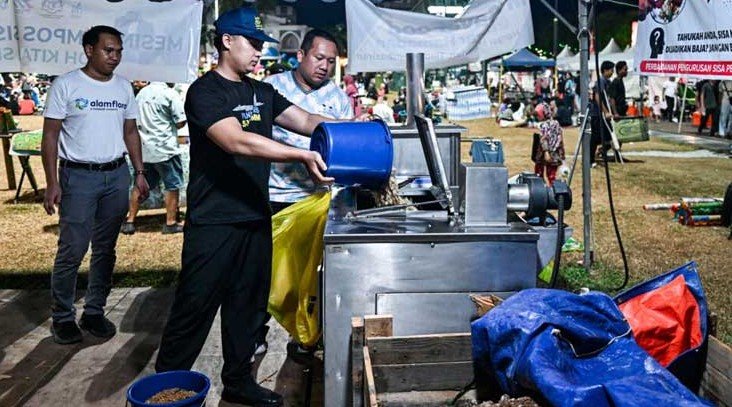This pioneering effort, led by the Solid Waste and Public Cleansing Management Corporation, aims to raise awareness about the environmental impact of food wastage. The machine processes approximately 25 kilograms of scraps daily, converting food waste into fertilizer over a 48-hour period. By incorporating rice husks and sawdust into the mix, the machine produces a nutrient-rich fertilizer that distributed to local farmers.
One such beneficiary is Zulyna Mohamed Nordin, who has witnessed remarkable improvements in her crops since switching to organic fertilizer derived from recycled food waste. Her leafy vegetables, bananas, and pineapples have flourished, showcasing the effectiveness of this eco-friendly approach. Moreover, by reducing reliance on costly chemical inputs, Zulyna highlights the economic benefits of embracing sustainable agricultural practices through this process of converting food waste into fertilizer.
This initiative not only addresses immediate environmental concerns but also fosters a cyclical approach to food production. As Abdul Shukor Mohamad Salleh emphasizes, the growth of crops nourished by this fertilizer completes a natural cycle, perpetuating sustainability. With monthly allocations of fertilizer increasing during Ramazan, this project demonstrates a scalable solution to leftovers management while promoting ecological consciousness within communities.


